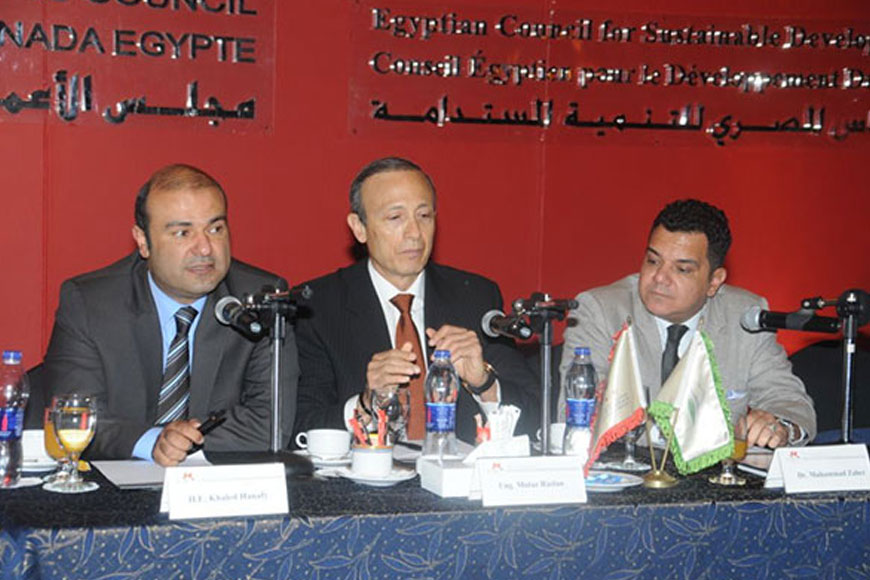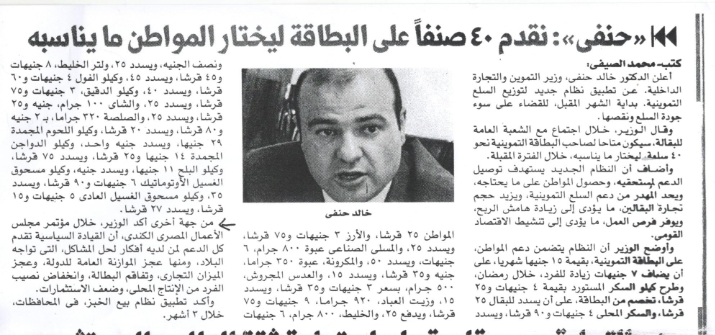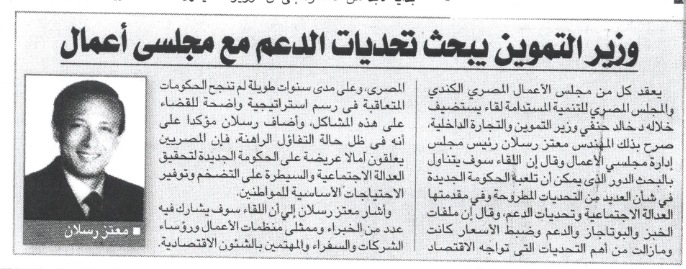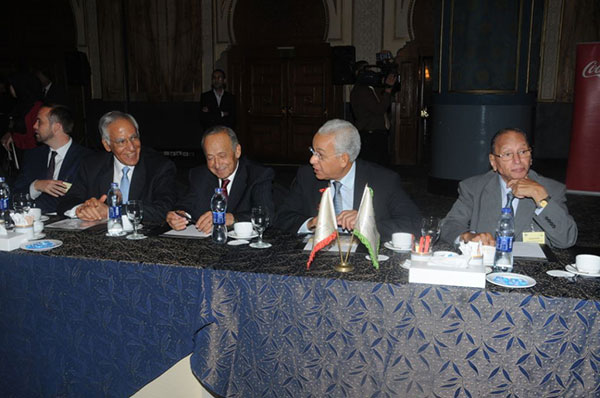
Date
Speaker(s)
Description
The Canada Egypt Business Council (CEBC) and the Egyptian Council for Sustainable Development (ECSD) hosted a roundtable discussion featuring Minister of Supply and Internal Trade, H.E. Dr. Khaled Hanafy. The discussion focused mainly on the government’s plans regarding subsidies, which have been untouchable by successive governments over decades, as well as the economic problems facing Egypt at large.
Over 150 notable attendees were present at the event. The attendees were CEBC’s and ECSD’s esteemed members, guests, businessmen, and politicians, among whom were former ministers Dr. Ibrahim Fawzy, Dr. Mustafa Al Saeed, Dr. Hany Hilal, in addition to Their Excellencies the Ambassadors of Armenia, Azerbaijan, Serbia and Georgia.
Chairman Raslan delivered the opening remarks to the event emphasizing that social justice was the leading demand for Egyptians during their two revolutions of January 25 and June 30. He added that lifting subsidies was attempted under previous regimes and ended up in unrest in more than one instance. Raslan called for learning lessons from these experiences and taking preemptive measures to avoid the problems of the past. He continued to say that subsidies are the current government’s heaviest burden, costing it a yearly EGP 205 billion, 34 of which for food subsidies.Raslan added that this is a situation that cannot continue, as the subsidy system is failing to support those in need and the budget deficit is overwhelming.
KhaledHanafy has held that post in the previous cabinet, also under Prime Minsiter Ibrahim Mehleb, and continued in the government following the election of president Abdel-Fattah Al-Sisi. The Minister introduced reforms to the bread subsidy system, for which he received considerable praise. Hanafy is the holder of a Ph.D. in Economics and worked previously for a number of international and local organizations as a consultant. Minister Hanafy commenced his word concurring with Chairman Raslan regarding the Egyptian economy’s ailments. He added that both the internal and external deficits exert pressure on the economy. The Minister explained that the deficit originates mainly from “untouchable” items in the budget, including subsidies. Exacerbating the economy is the stagnant Egyptian exports, the Minister added. Among the pillars of the Egyptian economy’s crisis is unemployment. The Minister explained that it is primarily structural unemployment due to the lack of coordination between the workforce and the job market’s demands. He also tackled flaws in the job market.
“Despite these problems, there is hope in the future,” the Minister continued. He also said that Egypt is qualified, thanks to its strategic geographical position among other elements, to add value and to compete in production internationally. Also among the advantages that Egypt has is its numerous Free Trade Agreements with a large number of countries. The Minister also said that Egypt could act as a trade hub serving Europe, GCC countries, as well as Africa. The Minister also showcased plans to reform the food production processes taking place in governorates, through introducing more processing stages in governorates, among other measures.
The Minister hailed the ministry’s implementation of the new bread subsidy system, which depends on the use of smart cards, accumulating points for beneficiaries, according to their sound consumption of bread, with which they can purchase other food products. He spoke of the Ministry’s plans to also implement similar reforms with other subsidized products in the near future.
The floor was opened for questions, which mainly focused on removing energy subsidies. Questions also covered the mining and quarrying sector and the potential of creating a trade hub for, as well as reforms in specific governments.
Food subsidies, while keeping millions living under the poverty line barely getting by, have weighed Egypt’s economy down for decades. It would take sacrifices, and a great deal of maneuvering an explosive issue, to achieve the desired reforms. However, the patriotic spirit following the June 30 revolution may indeed inspire Egyptians to get out of their way, to withstand unfavorable measures, for the sake of the country’s economic future.


















